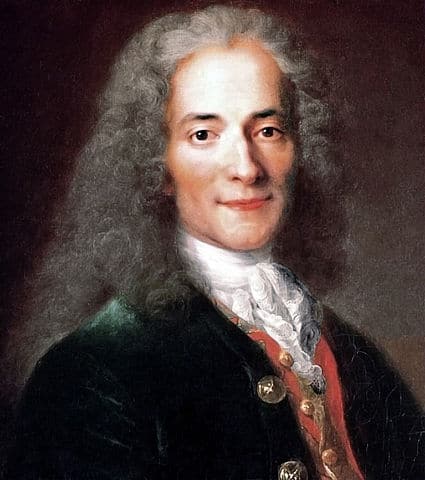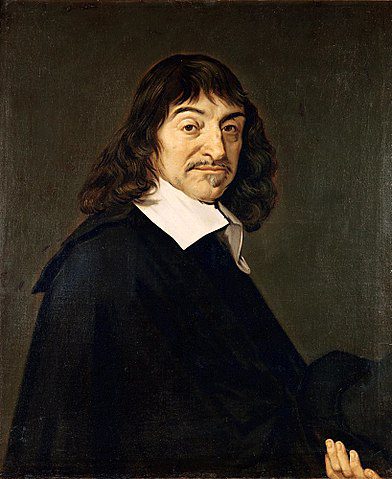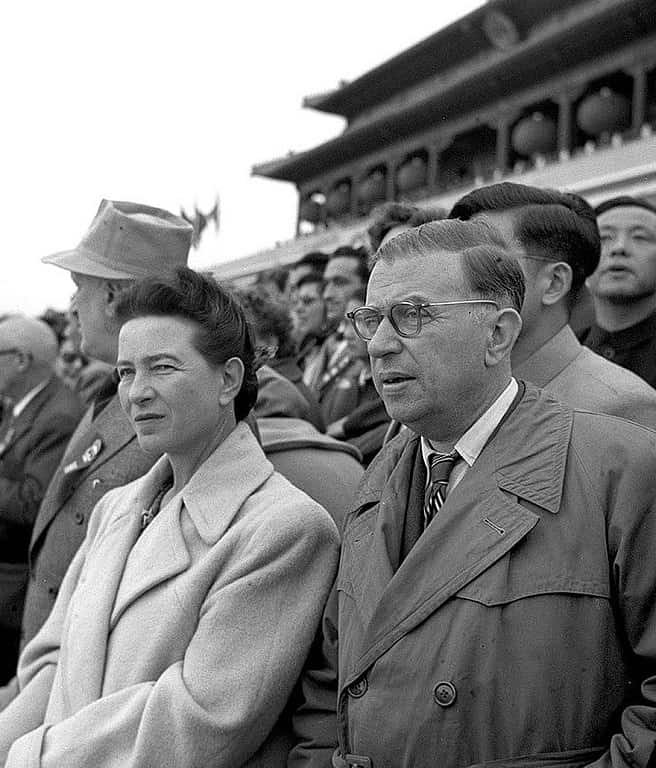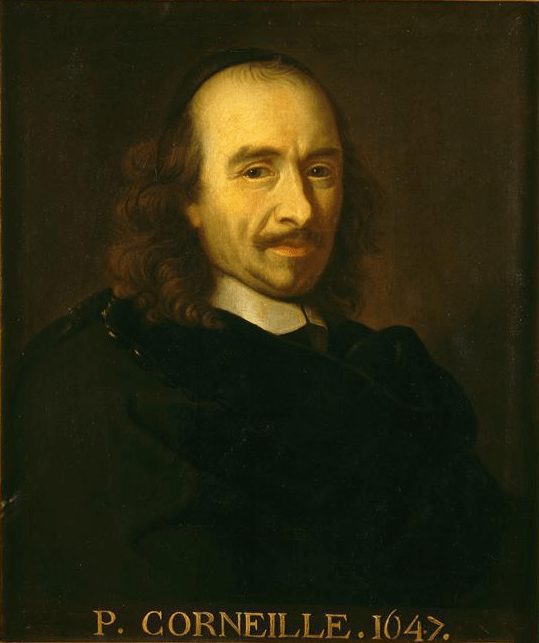10 Best Quotes and their Meanings by Parisian Litteraries
If there is one thing that France is known for, it is for the profusion of intellectuals and writers that have participated in shaping the history of the western world. One thing especially distinguishes French writers and litteraries: their famous wit and their absolute adoration for a well-rounded sentence.
This particular taste for precision, humor and concision is to me one of the things that distinguish French culture from others.
As a passionate of French literature and Parisian writers, I have selected 10 quotes by Parisian writers that embody perfectly this French intellectual spirit according to me.
Also, before we dive into the subject, If you are willing to visit the most iconic neighborhoods in Paris, or if you are simply curious about all things French and Parisian: some locals are giving free tours to help you experience the French capital like a true Parisian. If you are willing to explore the hidden gems in each of Paris’ iconic neighborhoods and truly feel the city like a local, click here to book yours!
1. «C’est joli la Bretagne et puis c’est pas loin de la France.» — Coluche
Translation: « Brittany is quite beautiful, and what I like the most about it that is not that far from France. »

Drawing of Coluche in the 1970’s. Coluche was a very popular and provocative comedian and humorist of the 20th century. He was born in 1944 and 1986, and even was candidate to the presidential election of 1981. – Source: Wikimedia Commons
This quote by French humorist Coluche makes fun of the tendancy of Parisians to snobbishly consider that France = Paris. Brittany, located at the extreme west of France, in an incredibly beautiful region, known for its capricious weather and its strong identity (often at the verge of independentism, which adds another layer to Coluche’s joke).
However, what a lot of people forget to emphasize on is that Coluche was not a snobbish Parisian but a popular humorist. So yes, of course this quote was a way for him to make fun on Parisian snobbism, while still participating in it. But this quote actually has a much deeper meaning that reflects on the crisis that France is living nowadays.
What I am trying to say is that while this quote sounds amusing at first sight, it actually reveals one of the greatest socio-economical fracture in contemporary France: the emphasis of public policies and collective imaginaries on Paris and the biggest cities of France, while neglecting rural and peripheral areas in France and the population that live there.
This fracture was one of the key elements that led to the 2019 crisis of the Gilets Jaunes in France: massive and impressive demonstrations by people wearing yellow vests and demanding, often violently, that the endemic neglect touching French middle-class outside of Paris be addressed. The French government responded to the crisis with violence, exacerbating the bitterness of the Gilets Jaunes. The demonstrations still occur sporadically to this day.
Coluche was a very popular and provocative comedian and humorist of the 20th century. He was born in 1944 and 1986, and even was candidate to the presidential election of 1981.
2. « Un peuple malheureux fait les grands artistes. » — Alfred de Musset
Translation: “An unhappy nation makes great artists.”

Alfred de Musset, one of the most famous Romantic French writers – Source: Wikipedia
Another quintessentially French mentality: the aestheticization of melancholy as a foundation for art. Another European nation that elevated unhappiness to the rank of value was romantic Germany (1770 – 1850).
It thus comes as no surprise that Alfred de Musset was himself a French Romantic. Romanticism was a literary and cultural movement that spanned over the mid 18th century and the 19th century. It was much more than a literary or cultural movement, because it embodied the whole spirit of the time: a youth first exalted by Napoleonian battles and the perspective to sacrifice themselves to a greater cause, and then disappointed in the next generations because of the feeling of having been born too late and witnessing France’s decay.
Famous romantic writers include Lord Byron, Victor Hugo, Alphonse de Lamartine, Stendhal, Alfred de Musset.
3. « Je ne suis pas d’accord avec ce que vous dites, mais je me battrai jusqu’à la mort pour que vous ayiez le droit de le dire » — attributed to Voltaire
Translation : I disapprove of what you say, but I will defend to the death your right to say it . »

Voltaire [at the age of twenty-four], by Nicolas de Largillière – WikiCommons
However in France, the conception of freedom of speech is not as top-down as in other cultures (with a State being the sole protector of it). Obviously, the State in a protector of freedom speech (the national motto of France being “Liberté, Egalité, Fraternité” meaning “Freedom, Equality, Fraternity”).
However, each citizen is invested of the responsibility to protect Freedom of speech in France, hence the popularity of this quote.
This sentence has known quite a particular revival in France in the past years, especially in the aftermath of the Charlie Hebdo attacks in 2015, during which almost the entire team of satirist French newspaper Charlie Hebdo was shot because of controversial caricatures of the Muslim prophet. In the following days, 4 million of people marched in Paris while holding pens to symbolize freedom of expression. A lot of signs during the demonstration read this particular quote attributed to Voltaire.
The majority of French people think this quote is attributed to Voltaire. However, this is not true! This quote was actually coined by English writer Evelyn Beatrice Hall, in her book the Friends of Voltaire. In this book, published in 1906, she invented this famous quote to sum up what she understood to be Voltaire’s philosophy: « I disapprove of what you say, but I will defend to the death your right to say it », was his attitude now », she wrote. Later on, she admitted that this was her own expression and not Voltaire’s. However, it was too late: the quote had already started travelling, and most French people still believe Voltaire to be the real mind behind it.
This quote however illustrates Voltaire’s love for contradiction quite well ; he himself wrote that « J’aimais l’auteur du livre de l’Esprit (Helvétius). Cet homme valait mieux que tous ses ennemis ensemble ; mais je n’ai jamais approuvé ni les erreurs de son livre, ni les vérités triviales qu’il débite avec emphase. J’ai pris son parti hautement, quand des hommes absurdes l’ont condamné pour ces vérités mêmes. » («I loved Helvetius. This man was better than all his enemies together; but I have never approved neither of the errors in his book, nor the trivial truths he debates with such emphasis. However I have defended him, when absurd men condemned him for these very truths. » )
5. « Aimer, ce n’est pas se regarder l’un l’autre, c’est regarder ensemble dans la même direction. » — Antoine de Saint-Exupery
Translation : « Love is not looking at each other. It is looking together in the same direction. »

Le Petit Prince by Antoine de Saint Exupery – Source: Amazon
You might know Antoine de Saint Exupery for his worldwide famous poetic book, The Little Prince. I love this quote by him because I think it offers an incredibly wise view on love.
Indeed, with France being the quintessential romantic country, and romanticism irrigating more generally a lot of aspects of our modern society, from pop culture to art, it can be quite easy to fall into the trap of self-absorbance when falling in love.
Looking at the Other, and loving the reflection of ourselves that the Other reflects back to us, is undeniably a huge part or love as defined in the western world. However, Antoine de Saint-Exupery’s quote puts this tendency in perspective, and reminds us that love requires decentering and building – not merely gazing at an idealized reflection of our significant others.
6. « Je pense, donc je suis. » — Rene Descartes
Translation: “I think, therefore I am”

Portrait of René Descartes by Frans Hals – WikiCommons
This one is not so much a witty quote than it is a philosophy statement that shaped western philosophy for centuries.
This phrase is also known in latin: “cogito ergo sum”. Descartes was a French philosopher of the 17th century that embarked on an ambitious and terrifying philosophical journey: taking nothing for granted, and doubting everything there is in order to identify solid truths.
This methodological doubt shattered his whole world, since nothing seemed to resist it. In the middle of his journey, Descartes was able to demonstrate that one thing existed and could not be doubted: his own existence. The justification lied in this short yet memorable phrase: “I think, therefore I am”.
7. « L’enfer, c’est les autres. » — Jean-Paul Sartre
Translation : “Hell is other people.”

Simone de Beauvoir & Jean-Paul Sartre by Liu Dong’ao – WikiCommons
An utterly famous sentence by French existentialist philosopher Jean-Paul Sartre. This sentence can be found in his excellent play Huis-Clos published in 1944.
This sentence refers to the difficulty to bear being looked and consider by the Other, because of the responsibility and self-awareness that this look gives us.
8. « On n’aime que ce qu’on ne possède pas tout entier. » — Marcel Proust
Translation: “We love only what we do not wholly possess.”

Proust is one of the most famous French writers of the 20th century – Source: Wikipedia
Marcel Proust is one of the most admired writers of the 20th century, author of the monumental La Recherche du Temps Perdu. This quote by him illustrates an interesting and paradoxical feature of human desire: one the one hand, we strive to possess entirely what we love. On the other hand, we love only what we do not wholly possess.
This unresolvable ambiguity is at the heart of the elusive relationship between French people and love. I always believed that French people are quite aware of this paradox, and this is why they are always extremely careful to leave space in their romantic relationships.
This attention space is crucial to how French people navigate their romantic relationships: they are less obviously fusionnal, and are always careful not to fall into the trap of forgetting themselves in order to live a romantic fusion that would erode quickly because they have lost all sense of individuality and all sense of space.
9. « Le temps est un grand maître, dit-on. Le malheur est qui’il tue ses élèves. » — Hector Berlioz
Translation: “We say that time is a great teacher. It’s too bad that it kills all its students.”
Hector Berlioz is a famous French classical composer of the 19th century. His reflection on time is right in line with the preoccupation at the time of the Romantic movement (I told you about it in #2).
10. « Va, je ne te hais point. » — Pierre Corneille
Translation: “Go, I don’t hate you.”

Pierre Corneille by Le Brun – Public Domain – Source: Wikimedia Commons
This one is hard to understand without a little context. It is a verse extracted from Pierre Corneille’s masterpiece Le Cid, a play published in 1637.
This play features two star-crossed lovers, Chimène and Rodrigue. After an argument between the two lovers’ fathers, Rodrigue is forced to provoke a duel with Chimène’s father in order to avenge his own father. He kills Chimène’s father. Which would make Chimène hate her lover Rodrigue, right? Well, not in French theater!
In a very intense and famous scene, Chimène confronts Rodrigue. He repeatedly asks if she will forgive him, to which she nevers answers. The only sentence that gives her away is her last sentence to him, asking him to leave: “Go, I don’t hate you”.
This might be the most famous euphemism in the history of French theater; it embodies something of the French mentality when in love, expressing itself always in understated but yet very strong expressions.
—
There you have them, my top 10 quotes by French intellectuals! These writers, authors and philosophers are incredibly famous in France, so if you want to familiarize yourself better with French culture, you should definitely check them out and read some of the material they have published.
Planning a trip to Paris ? Get ready !
These are Amazon’s best-selling travel products that you may need for coming to Paris.
Bookstore
- The best travel book : Rick Steves – Paris 2023 – Learn more here
- Fodor’s Paris 2024 – Learn more here
Travel Gear
- Venture Pal Lightweight Backpack – Learn more here
- Samsonite Winfield 2 28″ Luggage – Learn more here
- Swig Savvy’s Stainless Steel Insulated Water Bottle – Learn more here
Check Amazon’s best-seller list for the most popular travel accessories. We sometimes read this list just to find out what new travel products people are buying.










